Helping Clients Secure Mortgages: A Realtor’s Guide to Verifying Income
In today’s real estate market, securing mortgage approval is a critical step in any home purchase. For realtors, understanding how to guide clients through the income verification process can significantly improve their chances of a successful transaction and strengthen trust in your professional expertise.
Why Income Verification Matters
Mortgage lenders rely on verified income to determine a borrower’s ability to repay a loan. Without it, the risk of default increases—and so does the likelihood of loan denial. This step ensures that the client is financially stable, has a steady income, and isn’t taking on more than they can handle. Helping your clients understand the purpose and process behind this requirement builds transparency and empowers them to act decisively.
Common Documentation Clients Will Need
Lenders typically require detailed documentation to assess income stability and consistency. As a realtor, you can prepare your clients by advising them to gather:
- Recent pay stubs – Usually covering the past 30 days.
- W-2 forms – For at least the last two years.
- Tax returns – Particularly important for self-employed individuals.
- Bank statements – Verifying deposit activity and available funds.
- Employer verification – Some lenders will contact employers directly to confirm job status.
For self-employed clients, income verification becomes more complex. These borrowers should expect to provide:
- Full tax returns with all relevant schedules.
- Profit and loss statements or business bank statements.
- Proof of business ownership, such as licenses or incorporation documents.
Understanding these requirements upfront can reduce friction during the approval process and prevent last-minute surprises.
Income Verification Methods Lenders Use
Depending on the lender and the client’s financial situation, income verification might be performed using one or more of the following methods:
- Manual verification: The borrower submits physical or digital copies of income-related documents for review. This process may be slower but is common for clients with non-traditional income.
- Automated databases: Services like The Work Number allow lenders to quickly access employment and income history directly from employers or payroll providers.
- Consumer-permissioned data: Borrowers grant lenders temporary access to their bank or payroll information through secure digital platforms, enabling instant verification without submitting physical paperwork.
Each method has its benefits, and helping clients understand which one applies to them can eliminate confusion and delays.
Challenges Realtors Should Be Ready For
As a trusted advisor, you’ll often find yourself navigating challenges that aren’t always part of the “sales” side of real estate. Some common issues that arise during income verification include:
- Irregular or seasonal income: For freelancers or those working in industries like hospitality or gig work, income can vary month to month. A strong history of earnings and a healthy savings balance can offset lender concerns.
- Missing or incomplete documentation: Sometimes, clients don’t realize what’s required until the last minute. Set clear expectations early to avoid delays.
- Errors in documentation: Inconsistent Social Security numbers, outdated employment info, or discrepancies in deposit records can all raise red flags. Encourage your clients to double-check everything before submission.
Tips to Add Value as a Realtor
Helping clients secure financing isn’t technically your job—but it sure makes you unforgettable. Here’s how to go above and beyond:
- Educate early: At your first serious conversation, talk about financing requirements, including income verification. Clients who feel prepared are far less likely to panic during the process.
- Collaborate with trusted lenders: Build relationships with mortgage professionals you trust. Looping in a lender early can help solve potential problems before they become dealbreakers.
- Help organize documentation: A quick checklist or template can go a long way in getting your clients prepared. Consider offering a simple folder (digital or physical) with reminders of what to gather.
Final Thoughts
Income verification is more than just paperwork—it’s proof that your client is ready to own a home. By understanding the lender’s perspective and helping your buyers get organized, you’re not only facilitating a smoother closing—you’re also proving your value in a competitive market.
Ready to take your real estate support to the next level? Start with something as simple (and powerful) as helping your clients verify their income—confidently and correctly.








